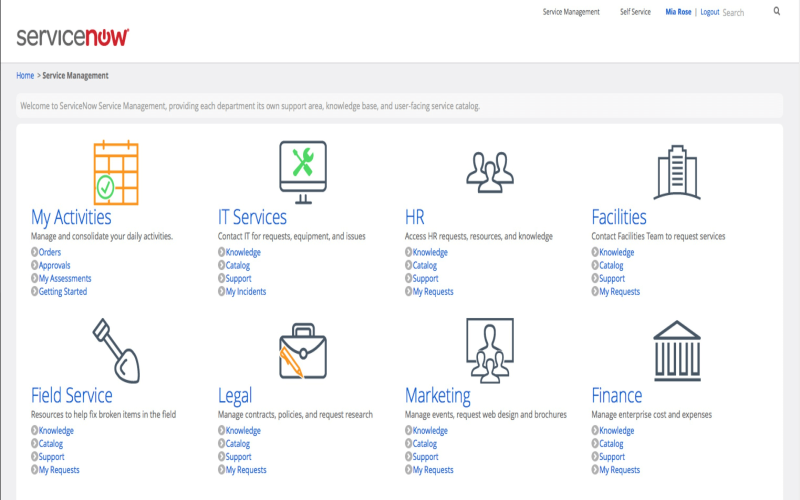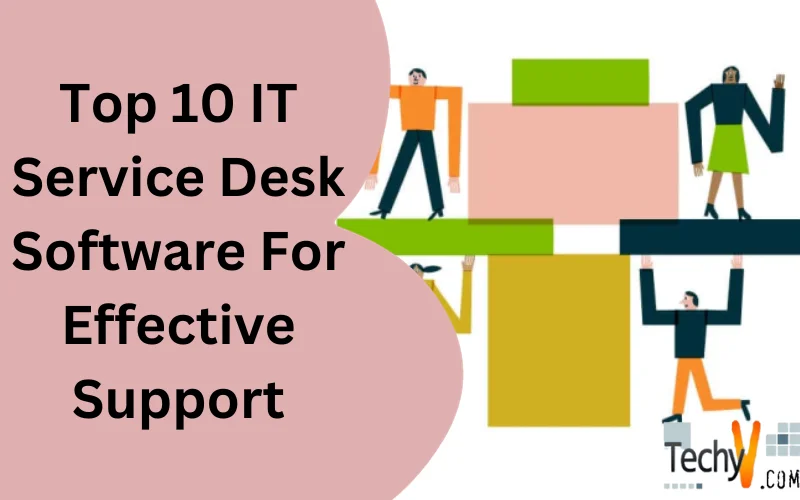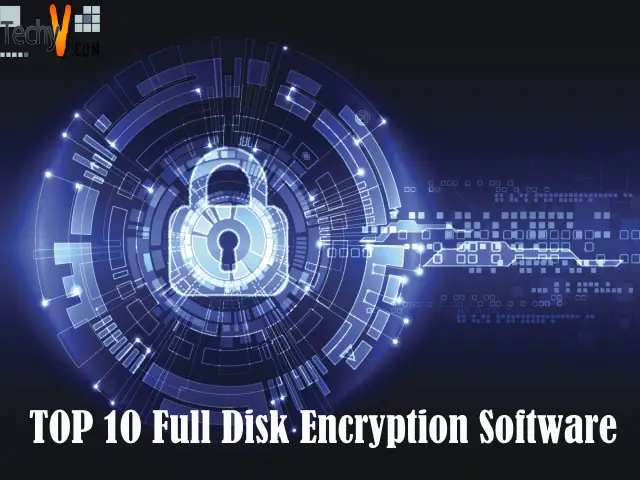Effective IT service desk software can be critically important for businesses wanting to provide stellar support to their customers and other employees. Having the right service desk software enables support teams to deliver exceptional customer experiences more efficiently. The ideal solution depends heavily on factors like company size, budget, specific needs, and internal processes. Smaller businesses may prioritize ease of use and affordability, while larger organizations require deep customization and very advanced functionality. Companies should carefully evaluate their current support requirements and potential areas for growth when selecting a platform. The diverse options highlighted here provide a strong starting point for identifying the best service desk software fit. But with so many options available, it can be daunting to narrow down the top choices. From my personal experience, these 10 IT Service Desk software stand out from the crowd and can help in Effective IT Support.
1. Zoho Desk
Zoho Desk offers a robust suite of capabilities that goes far beyond just primary ticketing. This includes features like IT asset management, automation of repetitive IT tasks, and remote endpoint management. Businesses can fully customize the support portal for agents, managers, and end users. Core features include SLA management, multichannel customer support, and an AI-powered virtual assistant for self-service. Zoho Desk also seamlessly integrates with many other business applications for even greater functionality. It is an affordable yet compelling option for most organizations.
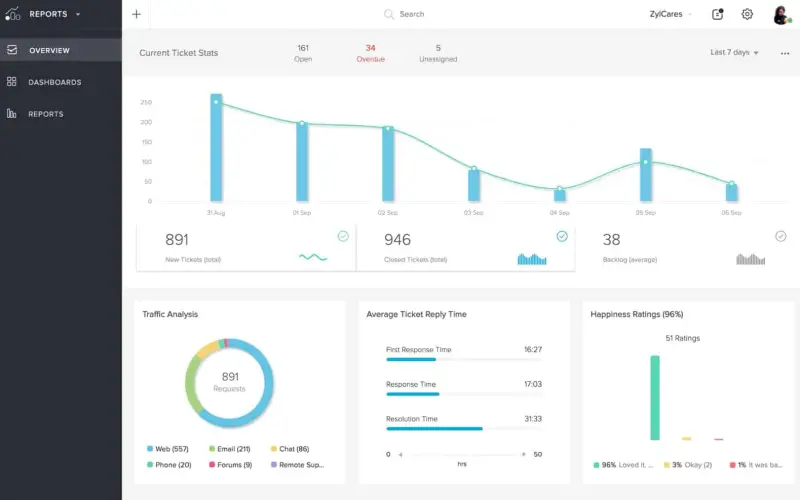
2. Freshdesk
For small to midsize support teams, Freshdesk delivers highly robust features without the high costs or complexity involved. Agents have a unified desktop to efficiently manage all customer tickets across multiple channels. Powerful team management and reporting tools provide valuable insight into agent performance. You can also easily set up automation to save time on standard service desk requests. Customize the portal experience specifically for customers and agents. Freshdesk makes it straightforward to provide quality support at scale.
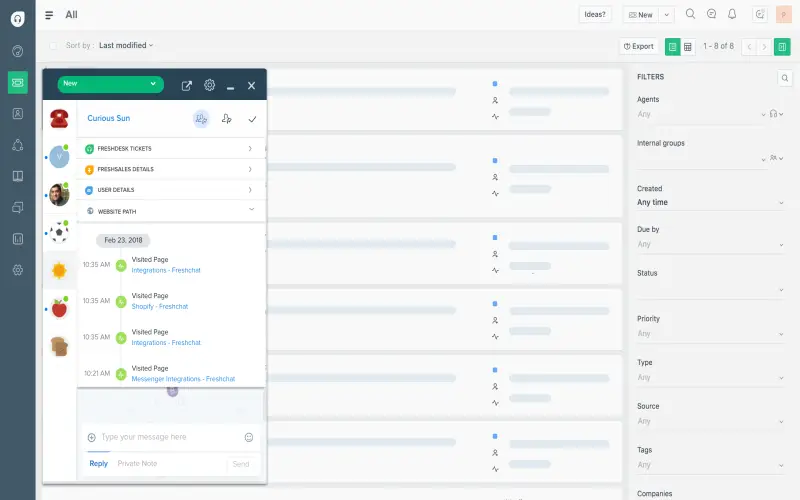
3. Jira Service Management
Part of the popular Jira platform, Jira Service Management brings very powerful ITSM capabilities to the table. It lets you connect your core service desk data to the rest of your business systems. Visualize relationships between assets, tickets, changes, problems, and more. Highly configurable to fit your organization’s specific processes and workflows. Benefit from advanced reporting and analytics for data-driven decisions. Jira Service Management is an excellent choice for mature IT organizations wanting deep visibility and control. But it does involve a steeper learning curve.
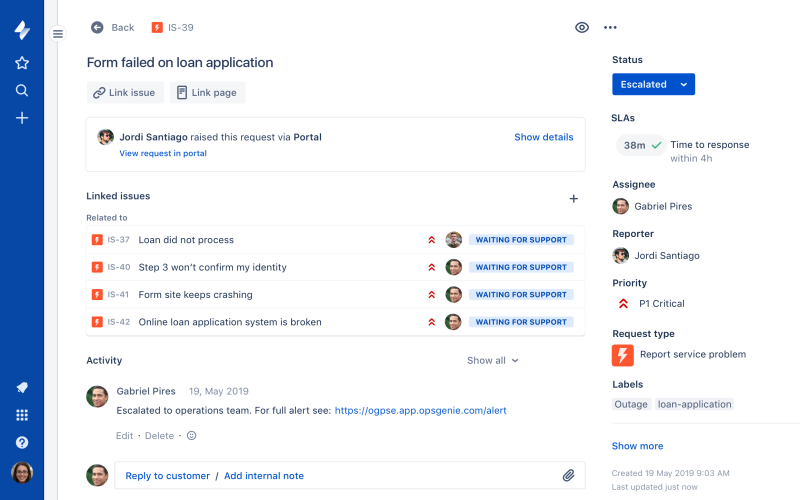
4. Zendesk For Service
A longtime leader in helpdesk software, Zendesk Support now integrates natively with the full Zendesk product suite. Agents have a single interface for managing all customer interactions across channels. Customers can easily find help through self-service options and chatbots. Managers gain valuable insights from advanced analytics and reporting. You can also seamlessly incorporate Salesforce CRM data. While pricing rises with more advanced capabilities, Zendesk remains an intuitive and user-friendly option.
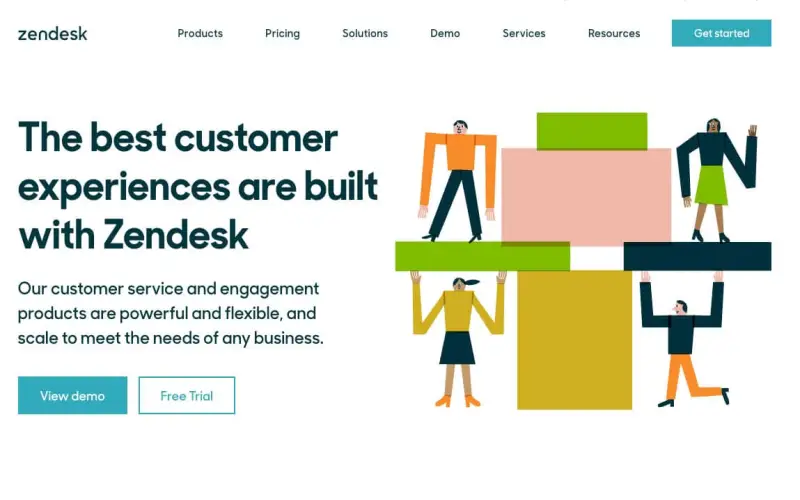
5. Hiver
Designed to minimize distractions, Hiver lets agents focus solely on managing high volumes of customer emails. The simple and clean interface provides a shared inbox, canned responses, and team collaboration tools. Incoming work is automatically distributed to agents based on individual skills and availability. Managers can closely monitor performance and report on critical metrics. Hiver seamlessly integrates with Gmail and Outlook for easy setup. The affordable pricing makes it very attractive for smaller teams wanting to elevate their email management.
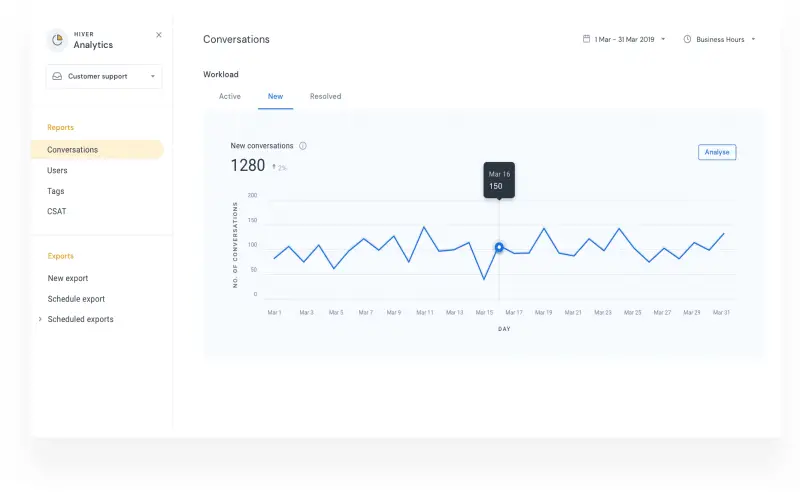
6. Help Scout
Help Scout provides exceptional email management capabilities alongside shared team inboxes, a knowledge base, and live chat support. You can set up automated workflows to reduce manual processes for agents. Robust reporting provides valuable insight into overall team performance and trends. The conversational interface facilitates personal connections between agents and customers. While Help Scout lacks full ITSM capabilities, its excellent email tools may warrant integration with another broader platform.

7. Spiceworks Cloud Help Desk
Spiceworks Cloud Help Desk offers very useful core functionality entirely for free, making it easily accessible for businesses with tight budgets. The cloud-based system covers ticketing, knowledge base, reporting, and more. More advanced capabilities like custom workflows and SLA management come with the paid tiers. It also integrates seamlessly with on-prem Spiceworks. The free option allows even very small teams to start improving their support capabilities immediately.
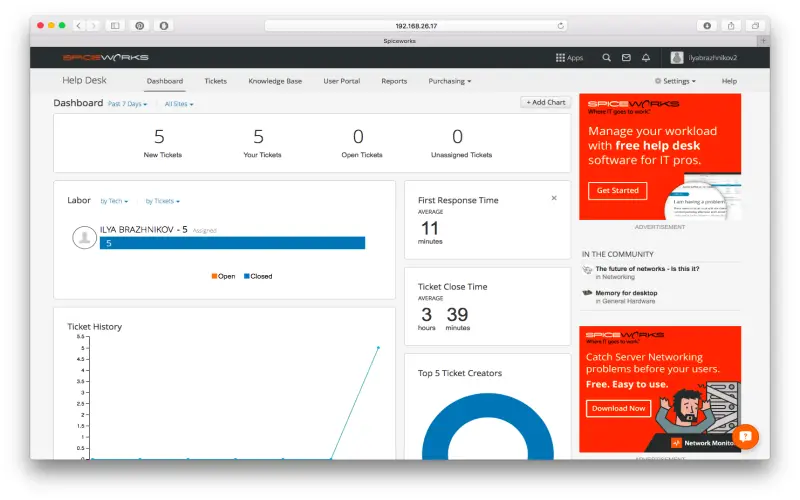
8. Freshservice
From the makers of Freshdesk, Freshservice offers more advanced IT service management. Visualize relationships between assets, changes, problems, and tickets. Set up automation to streamline repetitive processes for agents. Intuitive interface with very powerful customization options. Robust reporting provides actionable insights for leadership. While pricing is steeper for accessing the full functionality, Freshservice is ideal for mature IT teams wanting an all-in-one platform.
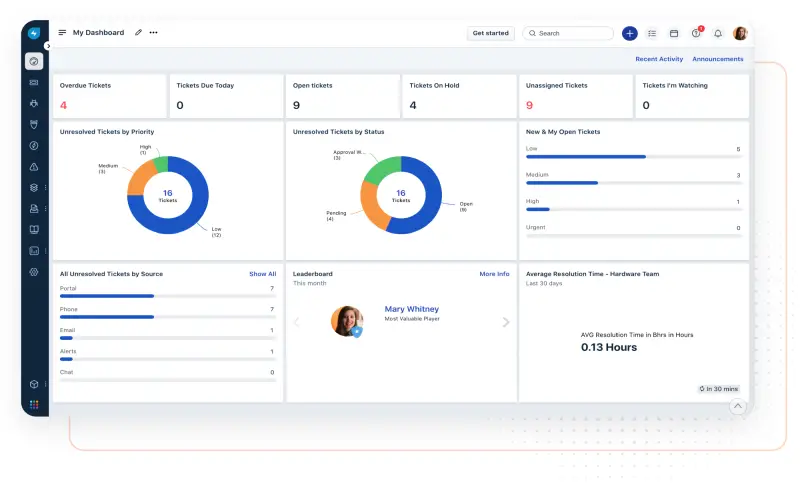
9. Vision Helpdesk
For very small businesses, Vision Helpdesk provides an affordable starting point for basic ITSM capabilities. The interface is intuitive yet still highly customizable for your needs. Easily set up rule-based ticket workflows and service-level agreements. Comes with a knowledge base and asset management features – native integrations with tools like Slack and Mailchimp. Vision Helpdesk covers the core ITIL basics without unnecessary complexity making it an excellent choice for early-stage and budget-conscious organizations.
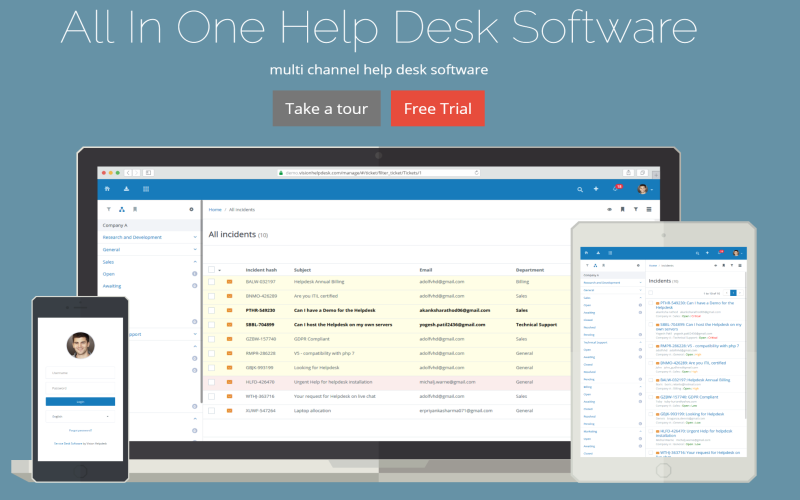
10. ServiceNow
As an enterprise-level ITSM solution, ServiceNow offers powerful workflow capabilities across many departments. Visually connect related data sets like assets, tickets, and problems. Comes with out-of-the-box integrations with numerous essential business applications and highly robust configuration options to fit your organization’s unique processes. Advanced reporting and analytics inform strategic decisions. However, ServiceNow requires significant investment and expertise to get the most value. It is ideal for large organizations wanting extensive ITSM capabilities.
